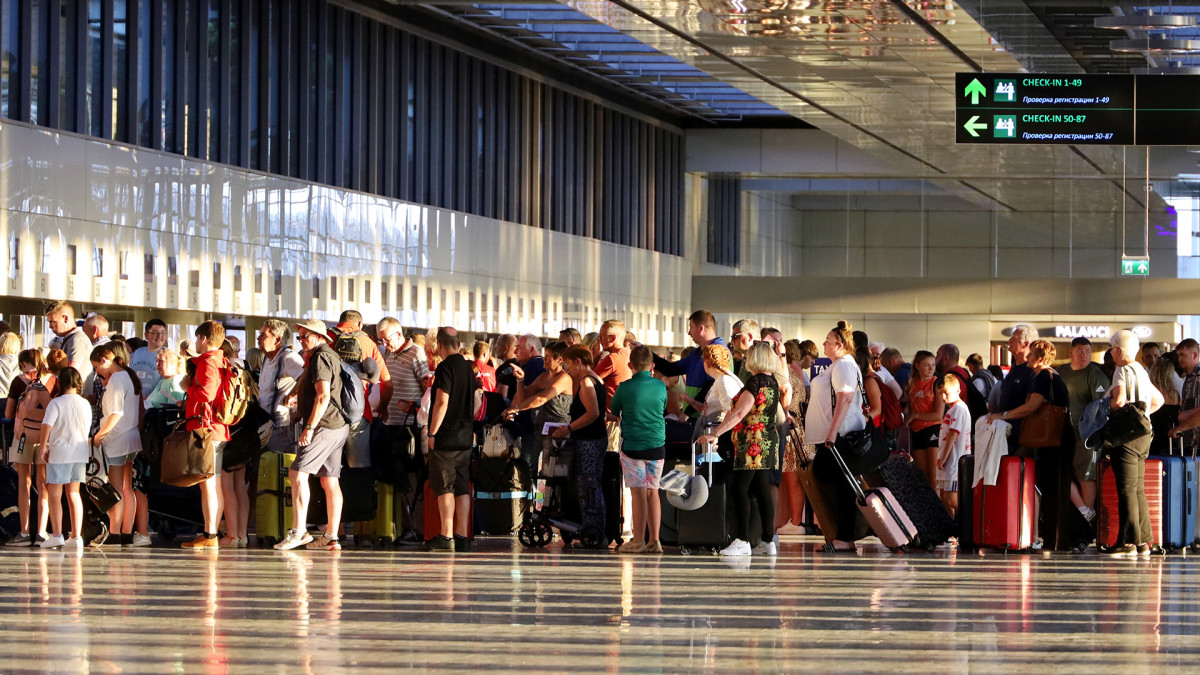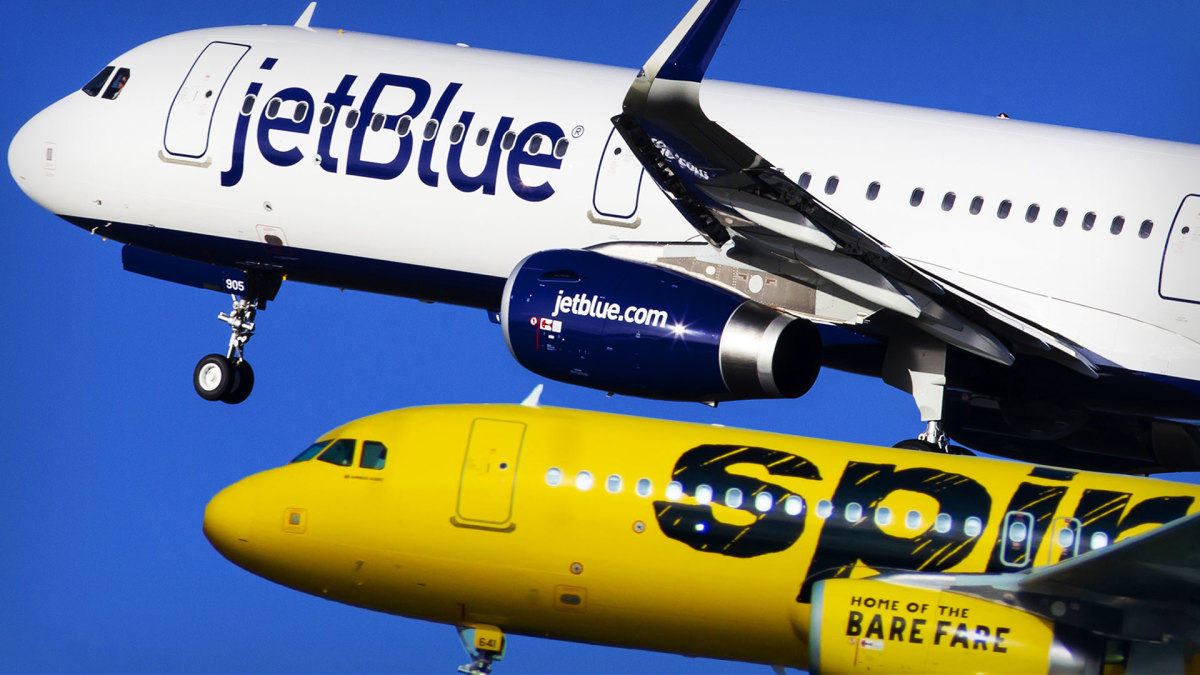
Spirit Airlines faces a fight for its survival.
The company had bet its future on merging with JetBlue, a deal that would have ended Spirit's low-cost business model. Like Frontier Airlines, Spirit Airlines (SAVE) operates using a full a la carte model.
Customers pay a low price to get a ticket on the plane. Anything else they want including a seat assignment, carry-on bag, checked baggage, and even water, tea, or coffee costs extra.
Related: Delta follows United and American in making unpopular move
Had the merger with JetBlue gone through, Spirit likely would have adopted its new partners' model. JetBlue offers low fares with seat assignments and carryons included while checked bags still cost extra.
Now that federal regulators blocked that merger, Spirit faces a heavy debt load and continuing losses. The company lost $214 million in the fourth quarter and $495 million for the year, That followed a $598 million loss in 2022.
Spirit has maintained a defiant stance, and CEO Ted Christie believes the company has a path forward.
"The Spirit team is 100% clear and focused on the adjustments we are currently deploying and will continue to make throughout 2024 to drive us back to cash flow generation and profitability,” he said in the company's fourth-quarter earnings release.

Image source: Shutterstock/TheStreet
Spirit has debts coming due
The end of Spirit's attempted merger with JetBlue (JBLU) has led to significant questions about the company's ongoing viability. Christie attempted to assuage those fears in his remarks. And so did his CFO.
“Regarding liquidity, we believe our $1.3 billion in total liquidity at year-end 2023 should be more than adequate to get us to our primary goal of getting the business to generate cash," CFO Scott Haralso said. "...And, while we have confidence in our ability to return to positive cash generation, we will continue to look at other opportunities to further shore up our liquidity resources as we progress through the year."
Haralso did note that the company has significant debt maturities coming up.
"The company is aware of its 2025 and 2026 debt maturities and is assessing options to address those maturities when the time is appropriate," he said.
That may not be enough for the company's creditors, according to a report from Quartz.
"Spirit has more than $1 billion debt that it has to repay, and soon, but some of that debt is trading for less than par value on public markets, suggesting some market doubt about whether the notes are worth what the company says they are. One issuance, due 2026, is trading at 74 cents on the dollar. Another set of notes, due in 2025, are going for 76 cents on the dollar," the website shared.
Analysts see bankruptcy risk for Spirit
Fitch Ratings has downgraded Spirit's credit rating and shared that the airline "faces serious headwinds toward improving its profitability including engine availability issues, overcapacity in certain leisure markets, and intense competition."
"Fitch expects JetBlue's profit margins to remain well below historical averages at least through 2024 driven by a number of near-term headwinds. JetBlue is faced with outsized impacts from air traffic control delays due to its concentration in the Northeast. Industry capacity is also outpacing demand, particularly during off-peak periods," the credit ratings service shared.
In addition, Bloomberg reported that Spirit's creditors are preparing for a possible bankruptcy filing.
Rapid Ratings, which tracks the financial health of companies, has warned the company's vendors that Spirit has a "high default risk" and has warned its vendors to "begin risk mitigation."
"Spirit Airlines Inc. is situated in our High-Risk group, displays weakness in five of our seven performance categories, demonstrates significant underperformance in ROCE (return on capital employed), and was downgraded in the most recent period. If current trends persist it would be logical to expect that Spirit Airlines Inc. will face serious default risk this coming year," Rapid Ratings shared.
Spirit stock closed on March 8 at $4.85, a huge drop from its 52-week high of $19.69. Shares lost roughly two-thirds of their value when the federal government blocked the airline's merger with JetBlue.
Related: Veteran fund manager picks favorite stocks for 2024







